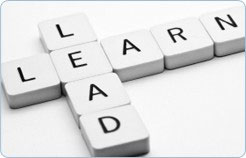Educational Management : an over view
Educational Management : an over view
The ultimate
aim of education is personality development and employability.
Management of Education is considered to be the most essential factor in achieving the desirable goals of higher education. Hence, it is the concern of all those who have been involved in the process of higher education. Educational Management has now emerged as an independent discipline in itself.
Educational management is to enable the right pupils to receive education from the right teachers, at a cost within the means of the State, which will enable pupils to profit by their Learning.
There are different types of Educational Management
1. Human Resource,
2. Physical Management and Material Resource Management,
3. Financial Management,
4. Time Management,
Knowledge Management
Most of the Higher Educational Institutions have adopted some of these types of Management for getting the benefits of achieving the goals of education.
Management of Education is not a static process but rather a dynamic one. It is a social, integrating and continuous process that emphasizes on planning, organizing, staffing, directing and controlling. Therefore, higher educational institutions have to work on the systemic approach, wherein, educational inputs are processed based principles of management, to achieve desirable outcomes. Higher Educational Institutions are expected to have better clarity regarding the programme and course outcome, while processing the curricular and extended curricular activities, through proper assessment procedures. Accreditation body considers that good Management Practices are to be inculcated in the activities related to the seven criteria considered for the Assessment and Accreditation process So, higher educational institutions must practice these academic activities as ‘Best Practices'. It is a given fact that management in education is crucial to the overall development of the institution/University
Quality Management Systems [QMS]
Any Institution from its long standing experience as a higher education service provider believed the need and relevance to develop an integrated Internal quality system in its engagements related to mentoring, reviewing, approving programmes and procedures as well as for developing and conducting programmes on quality aspects on a sustainable basis. It has to plan, test, implement and create documents for new procedures, processes, tools and evaluate results. Besides, it has to prepare and train its staff on a regular basis for effective implementation of approved systems and procedures. The concept of QMS is therefore conceived with an integrated approach to quality management and is fully empowered for its access, inspection and functional scope. QMS should governed by its Quality Assurance Cell.
QMS should approach and deployed through the following constituent units, with well defined functional responsibility, integrating Quality aspects holistically:
1. Quality Development and Review
2. Education Beyond Curriculum
3. Holistic Education
4. Internal Quality Audit System
The Quality Assurance Cell is the top most body of the QMS. Its role is to direct and advise the functionaries of QMS and evolve and recommend quality policies and frame work for the institution.
1. Quality Development and Review
This must be carries some of the following specific functions.
· Evaluate and suggest quality improvement of academic and administrative functions of the Institution.
· Introduce a properly formatted feedback system for the purpose
· Preparation and updating of Manual of Academic Procedures and Administrative functions.
· Regular review of procedures and practices of other institutions of repute by visits and/ or by indirect methods like website browsing, secondary data input
· Formulate evaluation criteria in respect of various academic and administrative functions with reference to NAAC guidelines
· Recording and monitoring of quality measures of the Institution including quality audit
· Consolidate the information and prepare the Annual Report
2. Education Beyond Curriculum
This must be carries some of the following specific functions.
· Analyze the current trends, policies and issues affecting higher education system as well as bridge gaps in curriculum
· Organizing international, national, regional level discussions, workshops, seminars for leadership development, capacity building and quality enhance ment of faculty and administrators
· Initiate and propose interdisciplinary programmes, projects and courses
· Develop forums for academia-industry cooperation and interaction
· In-house faculty development.
3. Holistic Education:
This must be carries some of the following specific functions.
· Review and develop skill modules and the curriculum to assimilate the mission of the Institution to be a 'nurturing ground for an individual's holistic development to make effective contribution to the society in a dynamic environment.
· Develop holistic education as a culture merging with academic practices.
· Conduct holistic education course training for new teachers-an orientation to familiarize Institution/University culture and how to conduct themselves within and outside class rooms/ campus
· Conduct workshops/ seminars for teachers on holistic education and development.
· Holistic Education orientation at the beginning of the year for all Students.
4. Internal Quality Audit System:
· Established IQAC should conduct peer visit for internal auditing in each of the activities of all the departments and sections of the Institution.
· The institutional peer committee should submit review report and should discuss in academic members committee.
The Internal Quality Assurance Cell, the apex body on quality management gives the directional initiative for evolving as well as Institutionalization of above targets. It facilitates strong leadership for long-term effectiveness and monitors strategic planning, learner focus and attempts to create sustainable quality environment. It encourages technology, planning process, process management, process improvement, employee satisfaction and engagement, management by result, total participation and continuous improvement with support from central administration of the Institution/University.
End Point: Education ends, when Institutions became markets.........
Dr Nikunj Bhatt
Associate Professor and IQAC coordinator
drnikunjbhatt@vpscience.org




Comments